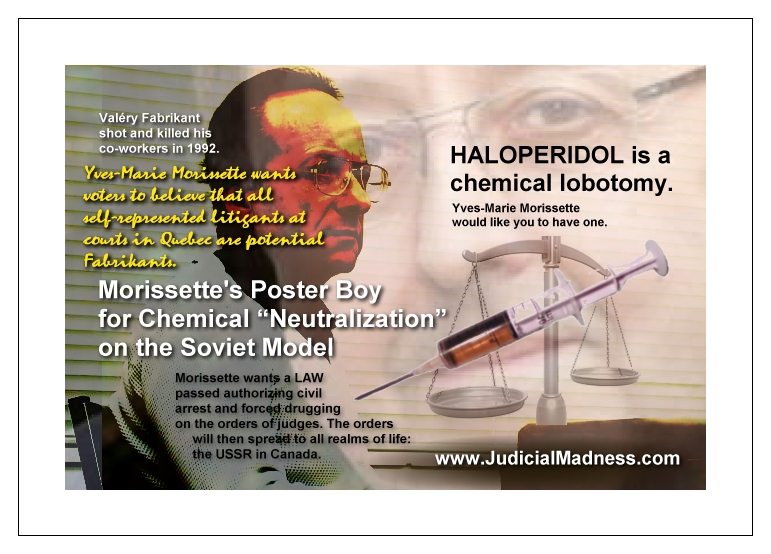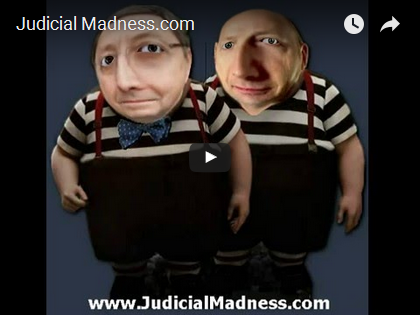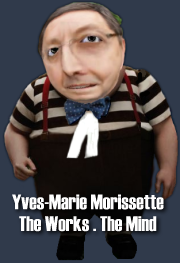Extract from the Corrected Version of the Law Reform Committee (Australia) Inquiry into Vexatious Litigants (2008)
Melbourne – 13 August 2008
Chair: Mr. J. Schefer
Witness
Mr. M. Thomas, Policy Officer, Mental Health Legal Center.
The CHAIR — I welcome Martin Thomas. Thank you very much for coming, and thank you for the material you have provided which we have looked through. There are just a couple of preliminaries before we start. The discussion we are going to have this morning is covered by legislation which affords you parliamentary privilege. Some of the things you might say here might be upsetting to people, but they will not be able to take any legal action. But if you say similar things outside the confines of the hearing obviously that protection will not be afforded to you. Hansard staff will be taking down what we discuss this morning, and you will be sent a transcript afterwards to which you can make minor editorial changes but obviously not changes to the substance. We have just under half an hour. I will leave it to you to talk to your submission and to the terms of reference, and then we will see where we go from there.
Mr THOMAS — I would like to thank you for the opportunity to attend today to present the legal centre’s position on vexatious litigants. I should let you know in advance that I did not prepare the submission; the policy coordinator, Vivienne Topp, did that, but unfortunately she is on leave at the moment and so I have been asked to attend in her place. I will do my best. It is not my area of expertise, but I have done as much research as I can on the matter.
[ ... ]
I would also like to challenge the notion of querulous paranoia which seems to be back on the agenda. It is a very interesting historical idea which seems to have re-emerged in a different format. I think the actual phrase that is being used at the moment is ‘unusually persistent complaints’, which is a very contemporary way of saying annoying people you have had enough of at this point. We would like to challenge the notion of querulous paranoia as a diagnosis and unusually consistent complaints, and try to contextualise that in terms of a person’s experience in trying to understand the bureaucracy.
[ ... ]
[ ... ]
Mr CLARK — In your opening remarks you seemed to question whether or not there was a recognisable mental condition or disorder relating to querulousness. Is that a fair conclusion from what you have said? And if so, could you elaborate on what leads you to that conclusion?
Mr THOMAS — It is an interesting diagnosis. I am sure you are all aware it was something that was early 20th century and eventually sort of faded away, thankfully, with time. It does seem to be back and it does seem to be a common — not a common, but it now seems to be an emerging way of explaining particular people who find bureaucracy baffling. I do not think that is an unusual thing, to find bureaucracy baffling, and some people respond to it in ways that are perceived to be threatening or are perceived to be unfortunate and that make them uncomfortable. I keep forgetting the present terminology — unusually persistent complainants — which is in the paper by, I believe —
Mr FOLEY — Mullen?
Mr THOMAS — That is correct —
The CHAIR — Just to be clear. Professor Mullen and Grant Lester came to the committee and gave us a presentation, so we are familiar with what they were saying.
Mr THOMAS — There is very interesting response to the main article they have written by Dr R. Pal. It is in the British Journal of Psychiatry. His response to it is very interesting. Would you mind if I read out that response?
The CHAIR — No, not at all. Go ahead.
Mr THOMAS — There is a particular section, and if I can find it in my notes I would be delighted. I think he makes an excellent point This is in the British Journal of Psychiatry (2004) 185 at page 176. This is a response to the article by Lester, Wilson and Griffin:
The number of letters, phone calls etc. reported by Lester et al… may be part of ‘normal’ human behaviour and reaction to bureaucracy. In a democratic country, we all have a right to protect our civil liberties. Often litigants lack knowledge, have no idea of procedures, and are misled by authorities who have a vested interest in protecting themselves. To label this behaviour as an ‘abnormality’ or something that requires psychiatric intervention is ludicrous. Indeed, I note the Royal College of Psychiatrists runs a very successful anti-stigma campaign to stamp out discrimination against those with mental illness. The diagnosis of querulous paranoia runs the risk of misuse by those who wish to use psychiatry as a manner of silencing criticism. The behaviour exhibited in the study is indeed a normal reaction to the circumstances faced. ‘Normal’ of course depends on many variables such as response time of the complaint officers, failure to address questions, replies to phone calls —
and the likes —
These factors have not been addressed.
In response to the study put together by Lester and others this doctor is saying that you have to understand that perhaps some people will respond to bureaucracy in this way and what needs to be considered is how the bureaucracy itself was attempting to deal with them, not just how a person is attempting to deal with bureaucracy.
In terms of the diagnosis, I think it is quite a dangerous one. It takes what is a legal issue and it applies a medical model to it. I think it is highly inappropriate to say that this person no longer has a legal matter; they have a medical matter. That is an incredibly dismissive approach to the legal system and to a person’s legal concerns.
[ ... ]
[ ... ]
[ ... ]
The CHAIR — Our job is to listen to expert views, and in the end we have to make a judgement about where we fit these things in in our final report and recommendations. But I think it is fair to say — and other members of the committee can correct me if I am wrong — that the approach they were coming from was not of saying that this querulous paranoia was a mental illness but that it was a behaviour that manifested itself. In the kinds of descriptions they give in their documentation it is a recognisable human trait. A whole lot of things are, and I know professionally you could identify and have come across people behaving in this way.
Mr THOMAS — Of course.
The CHAIR — Having said that, if it is something that needs particular responses to it, I think it would be fair to say that Mullen and Lester were sympathetic to having a responsive court, having a responsive bureaucracy and having a responsive complaints mechanism that are alive to the breadth of how people can react to things.
Mr THOMAS — I did not want to give the impression that I was undervaluing their research in any shape or form. The point I was trying to make was that it was transferring a legal concern over to a medical concern.
The CHAIR — That is exactly the point of our issue — that is, we absolutely did not want to medicalise a problem which we are seeing as a public policy issue and about how we can modify our laws and procedures so that we are able to give people full access to justice so that people can be heard properly, which is where we are coming from, but we did want to interrogate that particular area a little bit further.
Admin JMad: The full text of Dr. R. Pal’s letter to the British Journal of Psychiatry is already online here at Judicial Madness as a post: In defence of complainants, Dr. R. Pal




